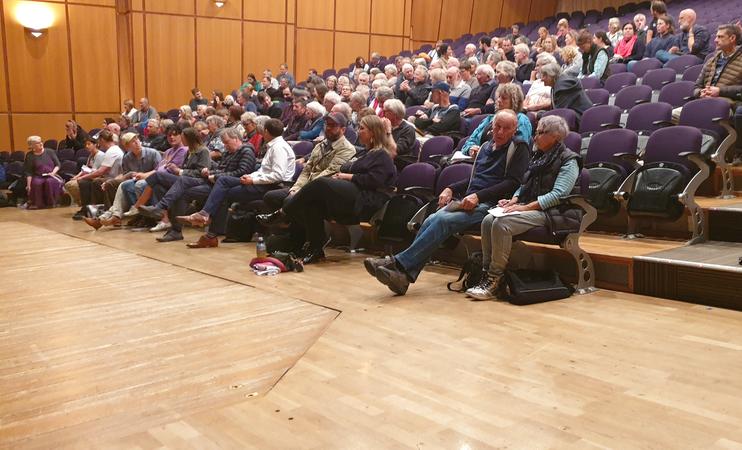
It was sparked by an application to renew consent for a 56,500ha Mid Canterbury irrigation project that some critics say will increase nitrate levels in water bores.
An independent hearing commissioner is considering the renewal.
The public cannot make submissions, because they were able to do so as part of the original consent process.
A panel, including a rural GP and an epidemiologist who has researched the links between nitrates and bowel cancer, spoke about health and environmental risks at the meeting at Burnside High School in Christchurch.
Many in the audience had travelled from Ashburton, where one man said this had been an issue he had been fighting for since the 1970s.
He was now retired but said this would make a difference for future generations.
Rural GP Dr Robin Barraclough raised concern over diagnosing a large number of people, namely farmers, with bowel cancer.
He said people had asked him whether the cancer was caused by nitrates in their drinking water and his answer was that he couldn't rule it out and that it was a possibility.
Event organiser, environmentalist Angus Robson, said Environment Canterbury had a lot to answer for and he hoped the group would collectively use its voice to prevent the consent going through.
He wanted Cantabrians to have a say on the irrigation consent renewal, which he claimed would increase nitrates to dangerous levels.
The current safe level in New Zealand, as mandated by the World Health Organisation, is 11.3mg per litre, but a 2018 Danish study found a link with the risk of bowel cancer when nitrate levels were as low as 0.87mg per litre.
The study prompted the government to appoint a taskforce to review safe drinking levels.












